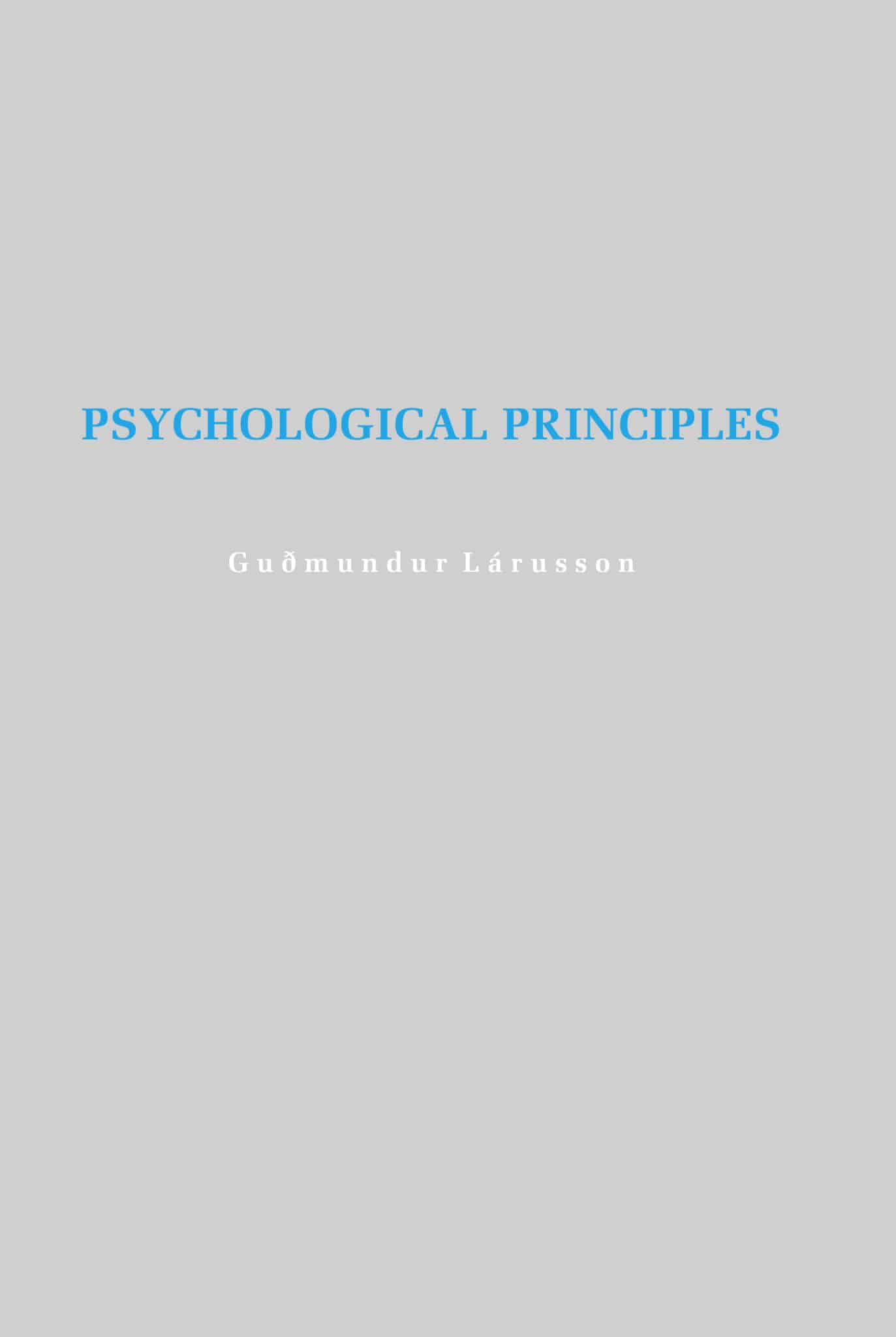Each mental phenomenon has a “g-aspect” (e.g. pleasure) and an “s-aspect” (e.g. the taste of chocolate). This book is about g-aspects, the basic categories of which are derived from two principles, viz. the tripartite doctrine, and the distinction between “bottom-up” and “top-down”. By combining these principles we get 27 basic categories of g-aspects, categories that seem to be in reasonably good accordance with the mental concepts of ordinary language (for example: eagerness, fear, initiative and rule-foliowing). The central concern of the present work is the definition and elucidation of the above-mentioned basic categories and the principles from which they are derived.
PSYCHOLOGICAL PRINCIPLES
Each mental phenomenon has a “g-aspect” (e.g. pleasure) and an “s-aspect” (e.g. the taste of chocolate). This book is about g-aspects, the basic categories of which are derived from two principles, viz. the tripartite doctrine, and the distinction between “bottom-up” and “top-down”. By combining these principles we get 27 basic categories of g-aspects, categories that seem to be in reasonably good accordance with the mental concepts of ordinary language (for example: eagerness, fear, initiative and rule-foliowing). The central concern of the present work is the definition and elucidation of the above-mentioned basic categories and the principles from which they are derived.
194,95 kr.
På lager: På lager
| Vægt | 472 g |
|---|---|
| Størrelse | 20 × 153 × 221 mm |
| Forlag | Forlaget Underskoven |
| Udgivelsesdato |
Relaterede varer
-
prisvogter
Husband Material
85,95 kr.Original price was: 85,95 kr..68,76 kr.Current price is: 68,76 kr.. Tilføj til kurv
- Stort udvalg
- Fri fragt ved køb over 799,-
- Levering ned til 1-2 hverdage
- Nem retur
- 30 dages returret
Each mental phenomenon has a “g-aspect” (e.g. pleasure) and an “s-aspect” (e.g. the taste of chocolate). This book is about g-aspects, the basic categories of which are derived from two principles, viz. the tripartite doctrine, and the distinction between “bottom-up” and “top-down”. By combining these principles we get 27 basic categories of g-aspects, categories that seem to be in reasonably good accordance with the mental concepts of ordinary language (for example: eagerness, fear, initiative and rule-foliowing). The central concern of the present work is the definition and elucidation of the above-mentioned basic categories and the principles from which they are derived.
| Vægt | 472 g |
|---|---|
| Størrelse | 20 × 153 × 221 mm |
| Forlag | Forlaget Underskoven |
| Udgivelsesdato |
Relaterede varer
-
prisvogter
The Summer Fair
85,95 kr.Original price was: 85,95 kr..68,76 kr.Current price is: 68,76 kr.. Tilføj til kurv -
prisvogter
Sweet Revenge
85,95 kr.Original price was: 85,95 kr..68,76 kr.Current price is: 68,76 kr.. Tilføj til kurv
- Stort udvalg
- Fri fragt ved køb over 799,-
- Levering ned til 1-2 hverdage
- Nem retur
- 30 dages returret










